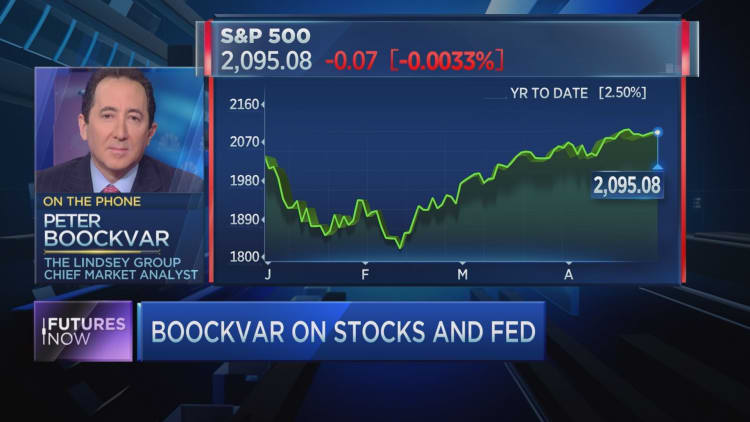
The Federal Reserve surprised few last week when it keep interest rates unchanged, noting that it "continues to closely monitor inflation indicators and global economic and financial developments." However, one market watcher has a blunt message for Fed chair Janet Yellen: You're placing your hope in a fairy tale.
On a recent CNBC's "Futures Now," Lindsey Group chief market analyst Peter Boockvar made the case that the Fed will never get the "perfect" conditions they seek before increasing short-term rates once again.
The Fed's mandate "isn't to have a perfect world. That only exists in fairy tales, dreams and in your econometric models," Boockvar said in a recent note to clients. He believes that the Fed's monetary has been far too accommodative under Yellen as well as under Ben Bernanke.
Boockvar argued that the Fed has been taking cues from shaky international banks, and that doing so will always offer a reason to keep interest rates low.
'Excuse after excuse'
In Wednesday's statement, the strategist noted new suggestions that the Fed is shifting its focus to concerns over international development. In its March statement, the Fed said that "global economic and financial developments continue to post risks," a line that does not appear in the more recent language.
"It's been excuse, after excuse, after excuse," Boockvar said. "This is why, eight years into an expansion, they've only raised interest rates once. They're afraid of their own shadow. They're in a terrible hole that they're not going to be able to get out of."
Whether looking at the Fed, the Bank of Japan, or the European Central Bank, Boockvar sees a landscape littered with policy errors.
"They all believe that, by making money cheaper, you can somehow generate faster growth," Boockvar said.
Based on this, Boockvar said that central bankers are losing their credibility and their ability to generate higher asset prices, putting the stock market in a precarious position.
"In a world that's already choking on too much debt, the cost of money really isn't an important variable and it is not a binding constraint on anybody's decision making."



